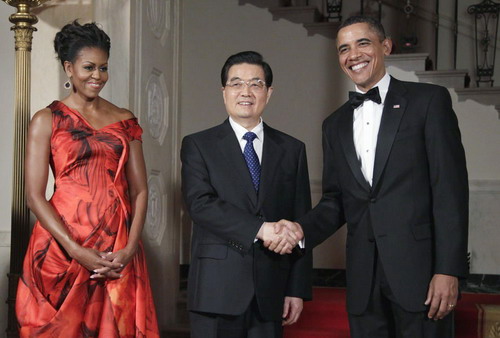Chinese President Hu Jintao got down to work shortly after his arrival in Hawaii on November 17th, meeting with a group of U.S. business leaders to exchange views on investment, trade and protection of intellectual property rights (IPR).
President Hu, on his second trip to the United States this year, made the remarks during a meeting with the leaders of top U.S. companies, including Keith Williams of Underwriter Laboratories, Michael Ducker of FedEx Express, and Thomas Donohue of the U.S. Chamber of Commerce.

Hu emphasized that deepening and expanding mutually beneficial trade and economic cooperation between China and the United States is in the interests of both peoples and conducive to the global economic recovery and development. Sino-U.S. trade and economic relations are currently faced with both challenges and important opportunities, he said. "The opportunities lie in economic restructuring in both China and the United States," Hu said.
Hu emphasized that China stands firm in its determination to protect IP, adding that since China has already had a fairly sophisticated legal system in that regard, the future focus would be law enforcement. He said the two sides should properly handle trade frictions through consultations based on an equal footing and in accordance with market rules and WTO regulations.

